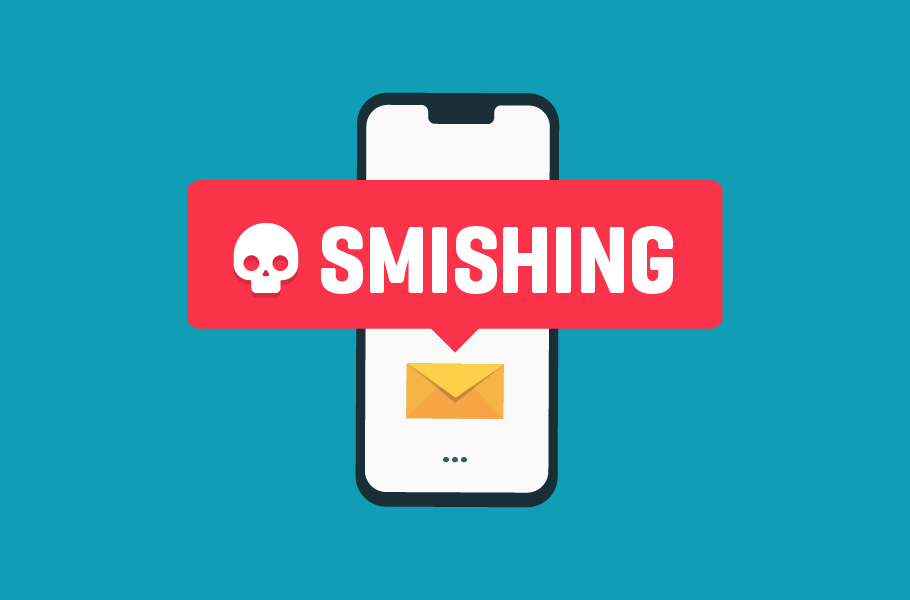In this era of advanced technology and constant connectivity, we rely heavily on our smartphones for communication and convenience. However, with the increasing popularity of mobile devices, cybercriminals have found new avenues to exploit unsuspecting individuals. One such method is smishing, a deceptive practice that targets users through text messages. In this post, we will explain what smishing is and provide you with valuable tips to identify potentially dangerous text messages. I will admit that this post hits really close to home as I have had family members fall victim to this type of cyber attack and really want to spread knowledge of how to spot and avoid this type of scam.
What is Smishing?Smishing, short for SMS phishing, is a form of cyber attack where fraudsters attempt to trick individuals into revealing sensitive information or performing malicious actions by sending fraudulent text messages. These messages often mimic legitimate organizations, such as banks, government agencies, or well-known companies, making it challenging to distinguish them from genuine messages.
Identifying Potentially Dangerous Text Messages:
While smishing messages may appear convincing, there are several red flags to watch out for that can help you identify and avoid falling victim to these scams. Here are some key indicators to keep in mind:
1. Urgency and Threats: Smishing messages often create a sense of urgency, using phrases like "Your account will be closed" or "Your payment has been declined." They may threaten negative consequences if you don't act immediately. Be cautious of any unexpected and urgent requests, especially if they involve sharing personal information or financial details.
2. Suspicious Sender: Pay attention to the phone number or sender's name. Smishing attempts may use generic numbers or names that don't match the legitimate organization they claim to represent. Remember, reputable organizations typically use verified numbers or recognizable sender names. If the sender isn't in your contacts list, turn up your level of awareness.
3. Grammatical Errors and Poor Language: Many smishing messages originate from non-native English speakers or automated systems, leading to noticeable grammar and spelling mistakes. Legitimate organizations usually have professional communication standards, so any message with numerous errors should raise suspicion.
4. Requests for Personal Information: Be wary of messages asking for sensitive information like account numbers, Social Security numbers, passwords, or PINs. Legitimate institutions generally don't request such details via text messages. If in doubt, contact the organization directly through their official website or customer service hotline to verify the request. Don't ever click on links or call phone numbers referred to in the message that was sent to you. Reach out to the organization (bank, vendor) that the message is claiming to come from via channels made available on their public site and contacts page.
5. Unusual URLs or Shortened Links: Smishing messages may include links that direct you to malicious websites designed to steal your information or infect your device with malware. Avoid clicking on suspicious links, especially those with irregular URLs or shortened links like bit.ly or goo.gl. Hover over the link (without clicking) to see the actual URL, and if it seems suspicious, do not proceed.
6. Addresses that are malicious but are made to look like what you're expecting: Many times malicious actors will register URLs that look very similar to legitimate sites and use them to trick users into giving up their personal information. If you get a text that says citibank will shut down your account because you are overdrafted but the 'a' has been switched with a character that looks like an 'a', you may think it's ok to click on the link to preserve your account. DO NOT. Contact the bank on your own and do not click on the link in the text message. In the image below, the 'a' has been substituted for a Cyrillic character that looks like an 'a' but if they weren't presented side by side, no one would be faulted for thinking all the links here looked legit.

7. Unexpected Prizes or Offers: If you receive a text message claiming that you have won a prize or are eligible for an incredible offer without any prior participation, exercise caution. Scammers often use these tactics to lure unsuspecting victims into revealing personal information or making financial transactions.
Conclusion: Smishing has emerged as a significant threat in the digital landscape, targeting individuals through deceptive text messages. By remaining vigilant and learning to identify potentially dangerous messages, you can protect yourself from falling victim to these scams. Remember, when in doubt, it is always best to contact the organization directly using trusted contact information to verify the legitimacy of any message. Stay informed, stay cautious, and stay safe in the digital world.


